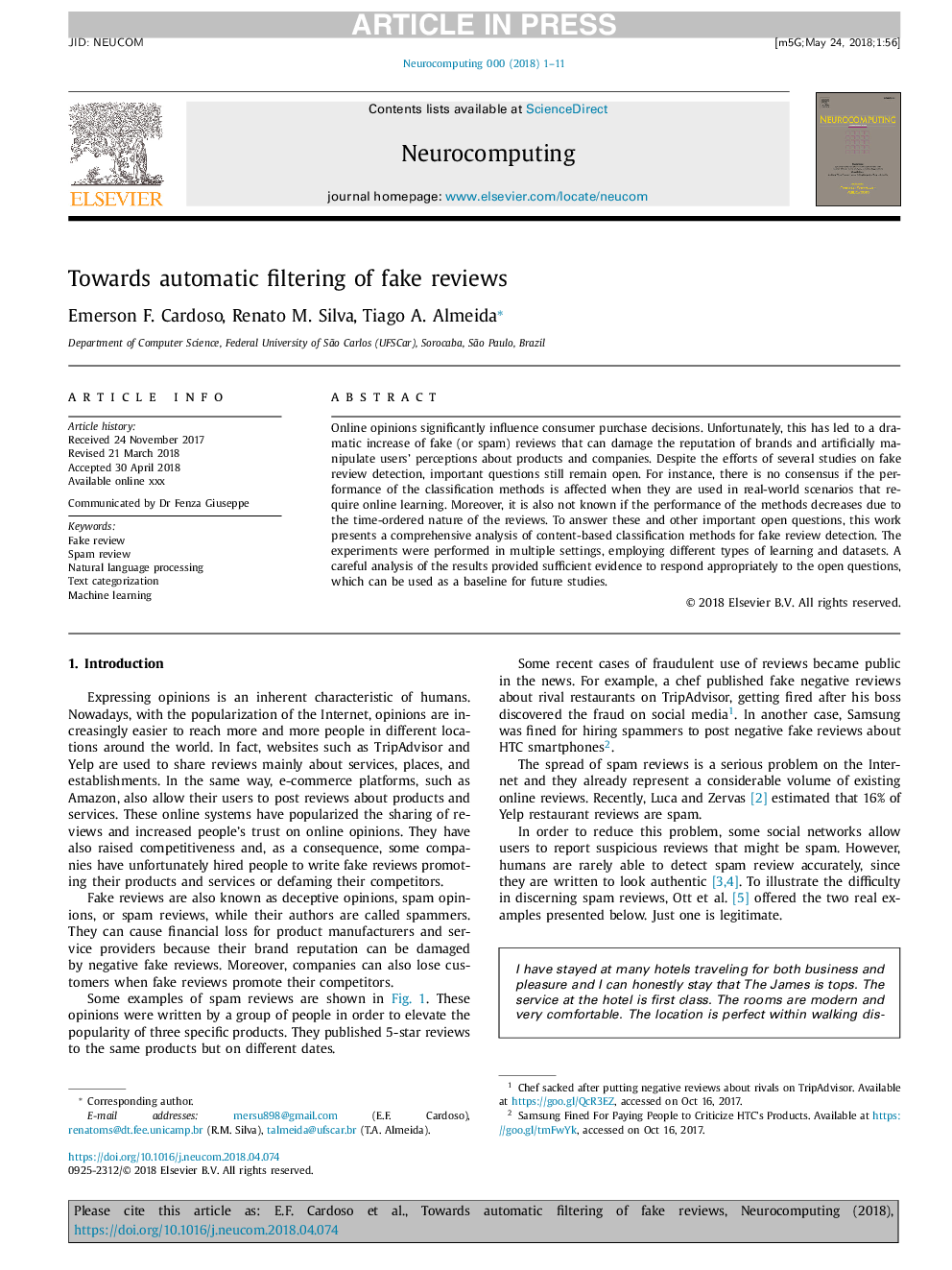| Article ID | Journal | Published Year | Pages | File Type |
|---|---|---|---|---|
| 6863687 | Neurocomputing | 2018 | 11 Pages |
Abstract
Online opinions significantly influence consumer purchase decisions. Unfortunately, this has led to a dramatic increase of fake (or spam) reviews that can damage the reputation of brands and artificially manipulate users' perceptions about products and companies. Despite the efforts of several studies on fake review detection, important questions still remain open. For instance, there is no consensus if the performance of the classification methods is affected when they are used in real-world scenarios that require online learning. Moreover, it is also not known if the performance of the methods decreases due to the time-ordered nature of the reviews. To answer these and other important open questions, this work presents a comprehensive analysis of content-based classification methods for fake review detection. The experiments were performed in multiple settings, employing different types of learning and datasets. A careful analysis of the results provided sufficient evidence to respond appropriately to the open questions, which can be used as a baseline for future studies.
Related Topics
Physical Sciences and Engineering
Computer Science
Artificial Intelligence
Authors
Emerson F. Cardoso, Renato M. Silva, Tiago A. Almeida,
